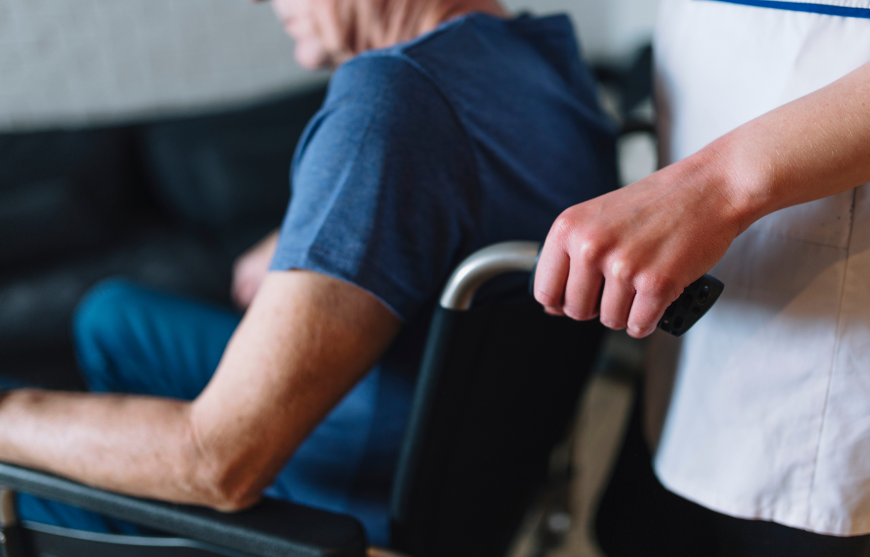Pain during intimacy is an issue that many women face but often hesitate to talk about. Dyspareunia, the medical term for painful intercourse, can affect both physical and emotional well-being. Left untreated, it may lead to frustration, stress, and avoidance of relationships. Fortunately, professional care can make a significant difference. Osteopractic Physical Therapy of Central Indiana (OPTCI) is recognized as one of the best providers of pelvic floor therapy, offering effective dyspareunia treatments that restore comfort, confidence, and quality of life.
What is Dyspareunia?
Dyspareunia is defined as persistent or recurrent genital pain that occurs before, during, or after intercourse. While many women may assume this is a normal part of aging or hormonal changes, it is actually a condition that deserves medical attention. Dyspareunia can occur in younger women, postpartum mothers, and those going through menopause, making it a widespread issue. With proper diagnosis and targeted dyspareunia treatments at OPTCI, patients can find relief and enjoy a healthier, more fulfilling life.
Common Causes of Dyspareunia
Several underlying factors can lead to painful intercourse. These include:
- Hormonal changes and vaginal dryness: Often linked to menopause or breastfeeding.
- Pelvic floor dysfunction: Overactive or weakened pelvic muscles can trigger pain.
- Medical conditions or infections: Endometriosis, urinary tract infections, or scar tissue from surgery can contribute.
- Emotional or psychological stress: Anxiety, past trauma, or relationship concerns can heighten symptoms.
At Osteopractic Physical Therapy of Central Indiana, clinicians conduct a detailed evaluation to identify the root cause before recommending specific dyspareunia treatments tailored to each patient.
Symptoms to Watch For
Recognizing symptoms early can help patients seek care before the condition worsens. Common signs include:
- Sharp or burning pain during penetration.
- Persistent discomfort after intercourse.
- Difficulty inserting tampons or undergoing pelvic exams.
- Emotional distress or fear of intimacy.
Because these symptoms affect both physical and emotional health, consulting experts at OPTCI for dyspareunia treatments can make a transformative difference.
Why Professional Treatment is Essential
Ignoring pain during intimacy can lead to ongoing discomfort, strained relationships, and reduced self-esteem. Many women mistakenly believe that nothing can be done, but this is far from true. Professional intervention, particularly with dyspareunia treatments from OPTCI, provides both physical and emotional relief. Specialized pelvic floor therapists address not only the physical causes but also educate patients on lifestyle adjustments to improve long-term results.
Effective Dyspareunia Treatments at OPTCI
Osteopractic Physical Therapy of Central Indiana offers comprehensive solutions that are non-invasive and effective. Their dyspareunia treatments include:
- Pelvic Floor Physical Therapy: Customized exercises help strengthen or relax pelvic muscles, improving function and reducing pain.
- Manual Therapy: Hands-on techniques release muscle tension, scar tissue, and adhesions that may restrict movement.
- Desensitization Techniques: Gradual exposure helps the body adjust and respond more comfortably to intimacy.
- Education and Lifestyle Guidance: Patients learn strategies for posture, breathing, and self-care to enhance recovery.
- Personalized Care Plans: Every patient receives an individualized treatment plan designed to meet their unique needs and goals.
With this approach, OPTCI ensures that each patient receives holistic care aimed at long-term success.
What to Expect During Your First Visit at OPTCI
Patients visiting OPTCI for dyspareunia treatments can expect a compassionate and professional experience. The first session involves a thorough consultation, review of medical history, and discussion of symptoms. After evaluation, the physical therapist designs a tailored treatment plan that aligns with the patient’s comfort level. The supportive environment at OPTCI allows patients to feel heard, respected, and empowered throughout their healing journey.
Success Stories & Outcomes
Many women who seek dyspareunia treatments at OPTCI report significant improvements, from reduced pain to restored intimacy with their partners. Beyond physical relief, patients often regain confidence, emotional well-being, and a renewed sense of control over their health. Long-term strategies also help prevent recurrence, ensuring sustainable improvements.
Why Choose OPTCI for Dyspareunia Treatment?
Osteopractic Physical Therapy of Central Indiana stands out for its expertise and patient-centered care. The clinic’s team specializes in pelvic floor physical therapy, offering advanced, evidence-based dyspareunia treatments. Unlike quick fixes or temporary relief, their approach focuses on natural healing without relying on medications or surgery. Patients benefit from personalized care, compassionate support, and the assurance that they are working with one of the best providers in the region.
Frequently Asked Questions (FAQ)
What exactly are dyspareunia treatments?
Dyspareunia treatments involve specialized therapies, such as pelvic floor exercises, manual therapy, and education, designed to reduce pain during intercourse and restore healthy function.
How long does it take to see results?
The timeline varies depending on the underlying cause, but many patients notice improvement after just a few sessions at OPTCI. Consistency with treatment often leads to long-term results.
Do dyspareunia treatments involve medication or surgery?
At OPTCI, the focus is on natural, non-invasive methods. Most patients achieve significant relief without the need for medications or surgical procedures.
Is pelvic floor therapy painful?
Pelvic floor therapy is designed to be gentle and supportive. Therapists at OPTCI work within each patient’s comfort zone to ensure a positive experience.
Can dyspareunia treatments improve emotional well-being?
Yes. Relief from physical pain often leads to improved confidence, restored intimacy, and reduced stress or anxiety related to intimacy.






